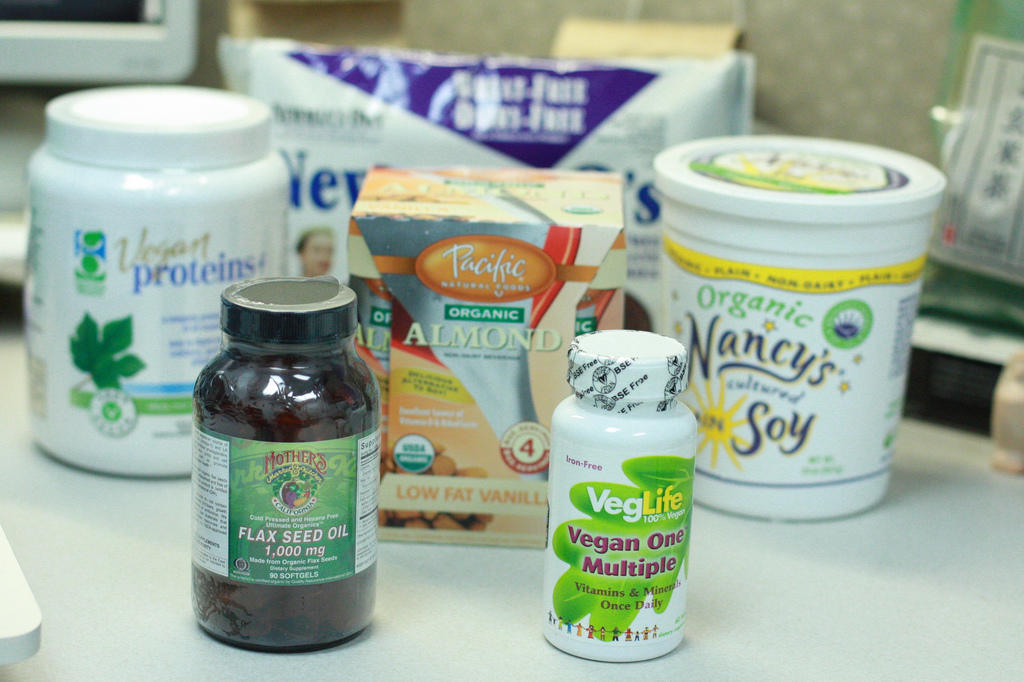
Adopting The Vegan Lifestyle
Are you a vegan or about to become one, and looking for some reasons to solidify why you have chosen this philosophy? Are you looking to find delicious and wholesome substitutes for basic cooking products? Are you keen to discover more about the nutritional benefits of consuming vegan foods?
Whatever your reason for stumbling upon this series of blog posts, we can assure you that you will find answers to these all-important questions and more! Changing the way you eat shouldn’t be taken lightly, so keep reading for a fact file on vegan eating.
For an overview of all things related to vegan food, visit the blog Vegan Food: What Is It And Why Is It So Good For Me?
Veganism - Is It For Me?
Eating vegan meals is not always the best choice for everyone, so if you have any concerns about this diet choice, then consult your doctor to find out if it is recommended for you and your situation. This is often the case for people who are already deficient in certain vitamins.
Even if you choose to go vegan just for a month, week or a day, I hope that you can take away from your experience an appreciation for the huge positives that are gained from veganism.
In this blog, we will inform you on how to prepare yourself for embarking on a vegan diet plan, by telling you which products you can find in shops to replace your daily essentials, as well as keeping you up to date on the vegan-friendly ingredients that can be used in vegan dishes or baked products.
They will taste just as satisfying, I promise!
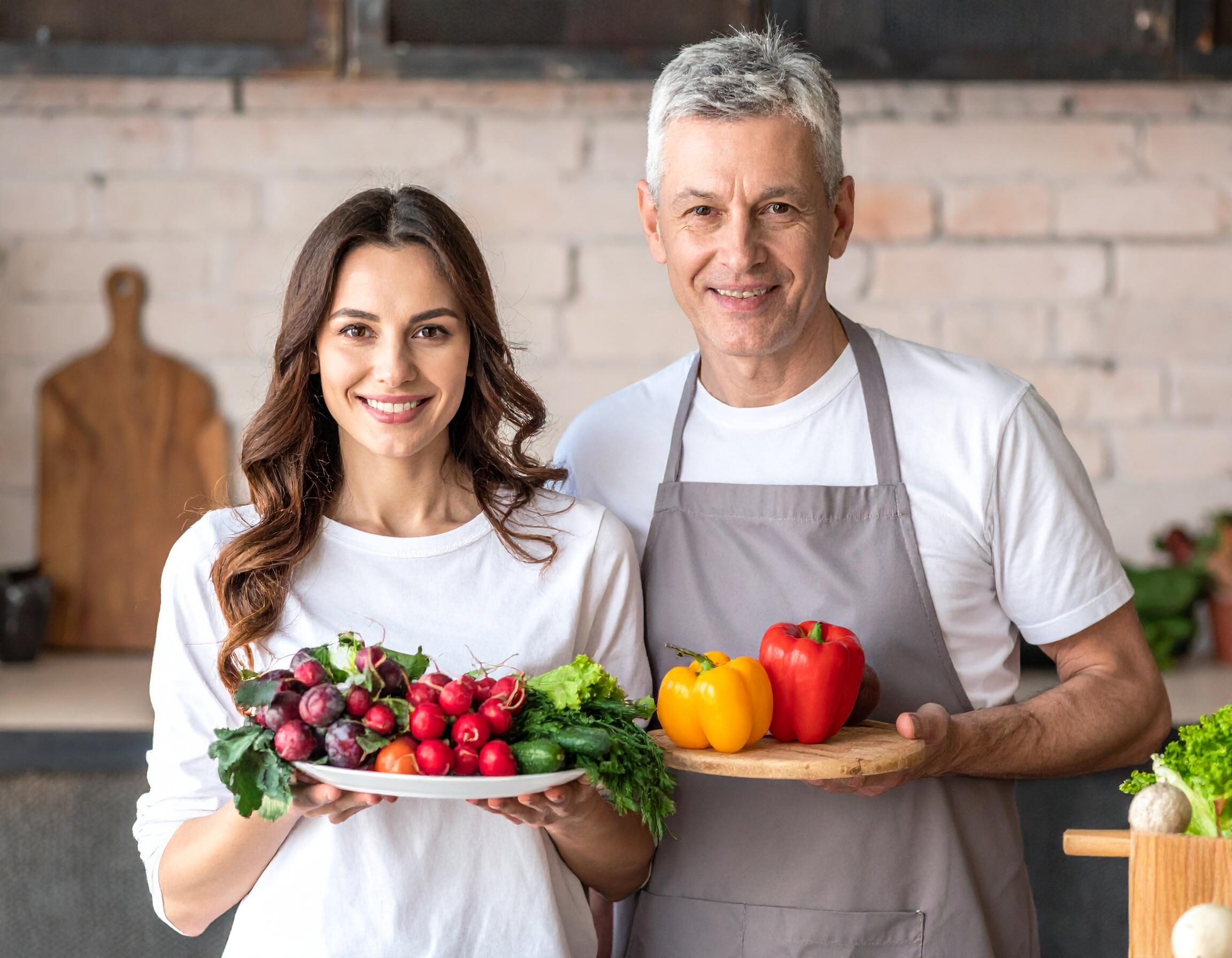
What Makes A Vegan Diet Plan Different To An Ordinary Diet?
First of all, it is important to understand what veganism entails: what food is vegan, vegan health benefits, the principles behind veganism, etc Once you have all of the knowledge you need about what is essentially a completely different way of living as well as eating, then you can make an informed decision on whether veganism is right for you.
Veganism is not to be confused with vegetarianism.
While 'veggies' abstain from eating animals, vegans neither eat meat nor use any products that are made from animals, for reasons of cruelty or exploitation of livestock. Some strict vegetarians may also refrain from consuming foods that are made from animals, like milk or eggs, too.
Many distinctions are made between veganism and other forms of dietary choices, and likewise, there are many different types of vegan.
Ethical vegans, for example, not only choose to eat in a vegan way, but they also extend the philosophy to their everyday lives, being cautious of products (whether dietary or household) that have resulted from the harvesting or industrial farming of animals. This is sometimes referred to as environmental veganism.
Regardless of how committed you are to the cruelty-free vegan principles, any move towards veganism from a traditional diet is life-changing in one way or another.
You may have to reconsider much more than just the products you use; you might have to, for instance, use or purchase new appliances for your kitchen (i.e. if you are used to sticking ready meals in the microwave, you might need to invest in a food blender or mixer to create new nutritionally balanced meals that meet your required intake of calories and vitamins), look for new restaurants to eat in or get take-always from (if there are suitable alternatives in your area that cater for vegans) and shop in different supermarkets to source the products you need.
But for each inconvenience of becoming a vegan, there are twice as many positives, the main one being a healthy diet and lifestyle.
For a more in-depth exploration of vegan health benefits, visit our blog on Vegan Health Benefits.
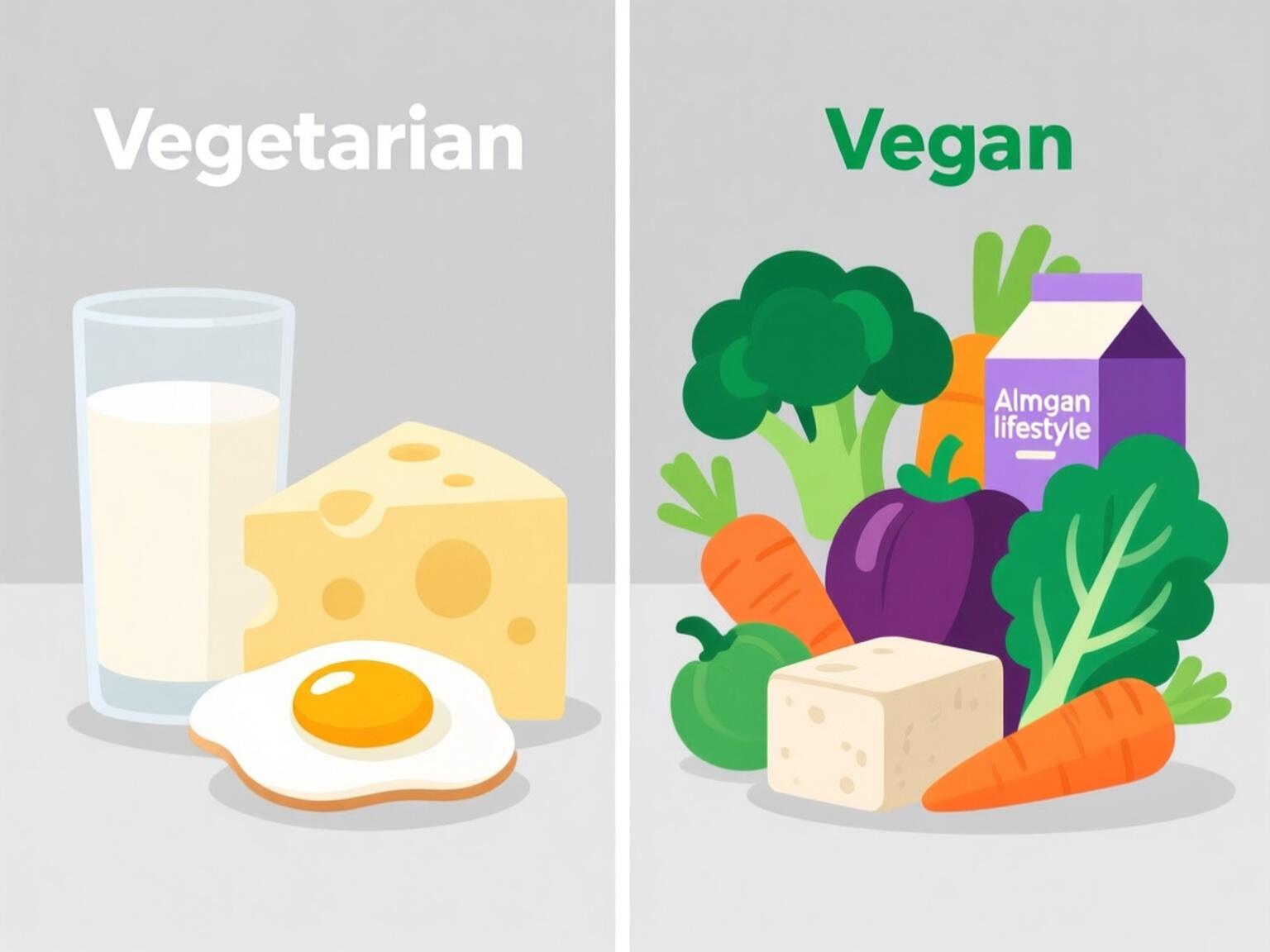
Vegan vs Vegetarian: Understanding the Key Differences
When exploring plant-based diets around the world, the terms vegan and vegetarian are often used interchangeably, yet they represent distinct lifestyles and beliefs. Both are connected by compassion towards animals, ethical choices, and a desire for a healthy, sustainable diet, but they differ in what they include or exclude from the body’s nutrition. Understanding the difference between vegan and vegetarian diets helps people make informed food choices that support vitamin, protein, and iron intake, while aligning with their personal or ethical values.
What Vegetarians Eat
Vegetarianism is a diet that eliminates meat and fish but still includes some animal-derived products. Most vegetarians consume dairy foods like milk, cheese, and yoghurt, as well as eggs. This makes it easier to obtain calcium, fatty acids, and vitamin B12, which are often limited in fully plant-based diets.
Main characteristics of vegetarian diets:
- Include: Fruits, vegetables, grains, nuts, legumes, dairy, and eggs.
- Avoid: Meat, poultry, and seafood.
- Nutritional focus: Balanced protein sources from plants, including lentils, beans, and dairy, with iron and vitamin supplements if necessary.
Vegetarian diets have existed for centuries in various parts of the world, often for ethical or religious reasons. Many vegetarians choose this lifestyle to reduce harm to animals while still maintaining flexibility in their nutrition.
What Vegans Eat
A vegan diet goes a step further. Vegans avoid all animal-derived products, not only meat and fish but also milk, cheese, butter, honey, and even gelatin. The philosophy behind veganism extends beyond food: it’s also about animal rights, non-exploitation, and promoting a cruelty-free society.
Main characteristics of vegan diets:
- Include: 100% plant-based foods such as fruits, vegetables, legumes, grains, seeds, and nuts.
- Avoid: All animal-derived ingredients, including dairy and eggs.
- Nutritional focus: Getting enough protein, iron, vitamin B12, and calcium from plant sources or fortified foods, ensuring a healthy, balanced body.
According to information from reputable nutrition sources, a well-planned vegan diet can meet all nutrient needs if it includes fatty acids and iron. Vegans often take vitamin supplements to replace nutrients that would otherwise come from animal products.
Ethical and Environmental Beliefs
The ethical foundation of both lifestyles is rooted in compassion towards animals and a commitment to sustainability. However, vegans typically adopt a broader stance, avoiding any product derived from animals, whether in food, clothing, or cosmetics, to protect animal rights. Vegetarians, while reducing harm, may still use some non-food animal products, reflecting a more flexible approach to ethics and society.
In essence, both vegan and vegetarian diets promote a healthy, plant-based lifestyle that benefits personal well-being and the planet. The main difference lies in how strictly one avoids animal-derived products. Whether choosing vegetarianism for its nutritional balance or veganism for its deeper ethical commitment, each path offers valuable information about how food choices can shape a kinder, more sustainable world. To explore practical ways to enjoy a vegan lifestyle, check out our Vegan Recipes for delicious, plant-based meals that are easy to make and packed with nutrients.

An Overview Of Vegan Health Benefits
Evidence suggests that, by following a hearty but healthy vegan diet plan, you could cut down on a number of common health risks. The major areas which have seen an improvement are those concerned with heart disease, high blood pressure, type 2 diabetes and obesity.
The health benefits of veganism are not limited to just the above. With evidence pointing towards a number of positive effects on the body, it begs the question: why aren't more people following such a diet?
As it stands, the Vegan Society believes that there are at least 542,000 vegans across the country, but expects this number to rise as more information emerges about the health benefits of being vegan.
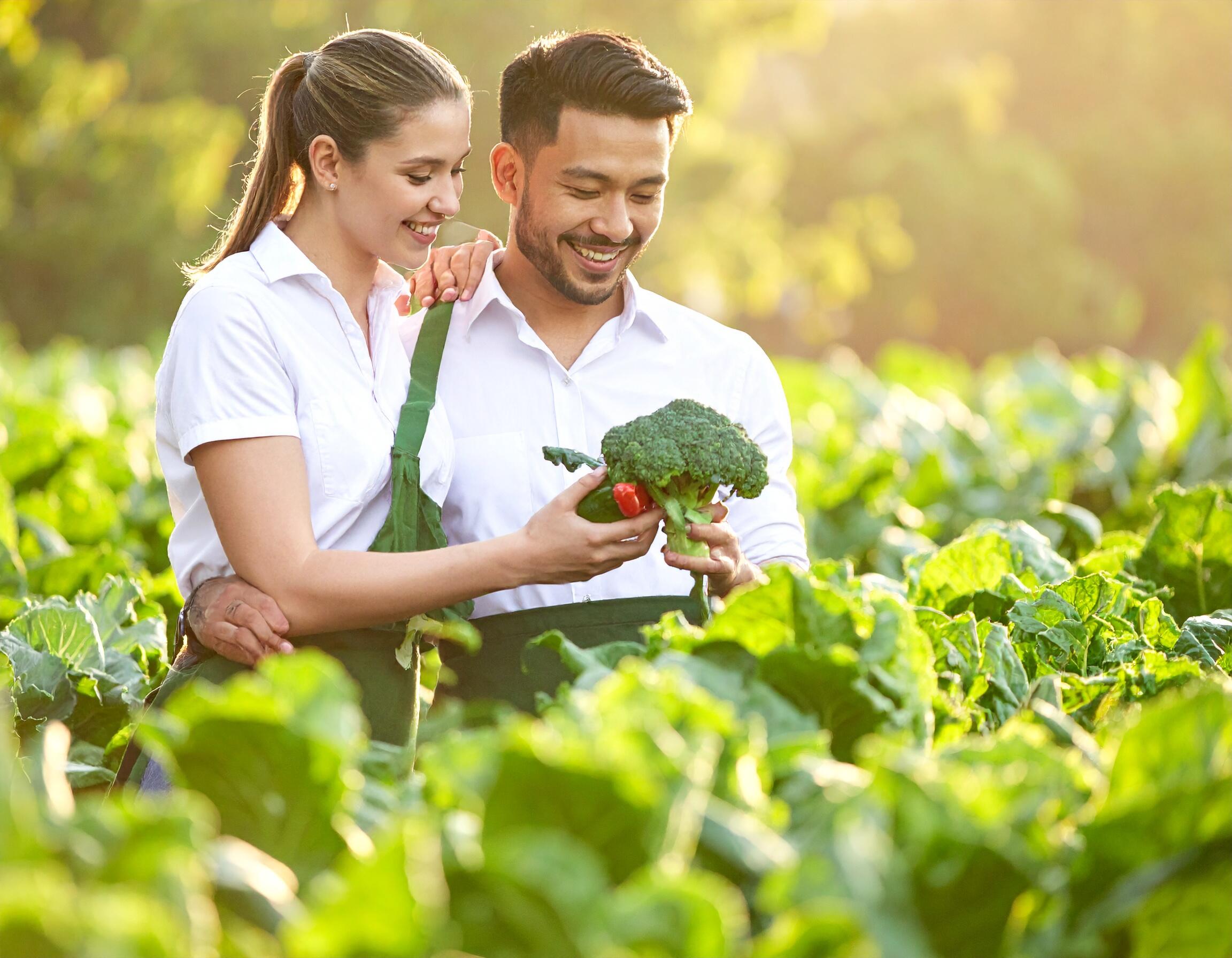
An Introduction To Substituting Your Essentials
'Out with the old and in with the new' is not an understatement when it comes to turning your diet regime around, but unlike short-term, fad diets which encourage you to only eat certain foods or food groups for a predestined amount of time, going vegan means replacing some of your basic cooking ingredients for good.
Once you have established what substitutions you need to make, you can then continue to cook meals as normal using those alternatives. Okay, so you may need to find some new recipes to follow or change the way you snack throughout the day (to ensure you are getting enough essential nutrients into your diet), but there are many vegan products that will make following a vegan diet plan incredibly easy.
Just take a look at these vegan replacements, which will surely become your go-to ingredients.
1. Milk
Dairy milk is so easy to replace in most recipes, with so many dairy alternatives on offer, like soya milk, rice milk, oat milk, almond milk, and many more. While your local store won’t have a huge choice, you are sure to find at least two alternative varieties to dairy milk in a standard superstore.
2. Cheese
Once again, there are numerous vegan substitutions for cheeses, all of which come in choices of blocks, slices or shreds. Tofu, for example, is a great replacement for ricotta cheese, and Daiya mozzarella is a perfect pizza topping. While neither will be as creamy as the real thing, you can add flavour when making them yourself by adding herbs and spices. Adding nutritional yeast will help recreate a cheesy flavour!
Warning! Don’t forget that not all vegetarian-labelled cheeses are vegan. Some contain a product called casein, which is not vegan, so check the label before you buy.
3. Eggs
Tofu is again a great alternative to scrambled eggs, and also appears in many vegan recipes as an egg replacement (in its soft form). If you need a product to bind with, you can use rolled oats, oat or soy flour, tomato paste, bread crumbs or cornstarch to do so. Finally, chickpea flour is really good for making omelettes with, while aquafaba is perfect for meringues or as a mayonnaise.
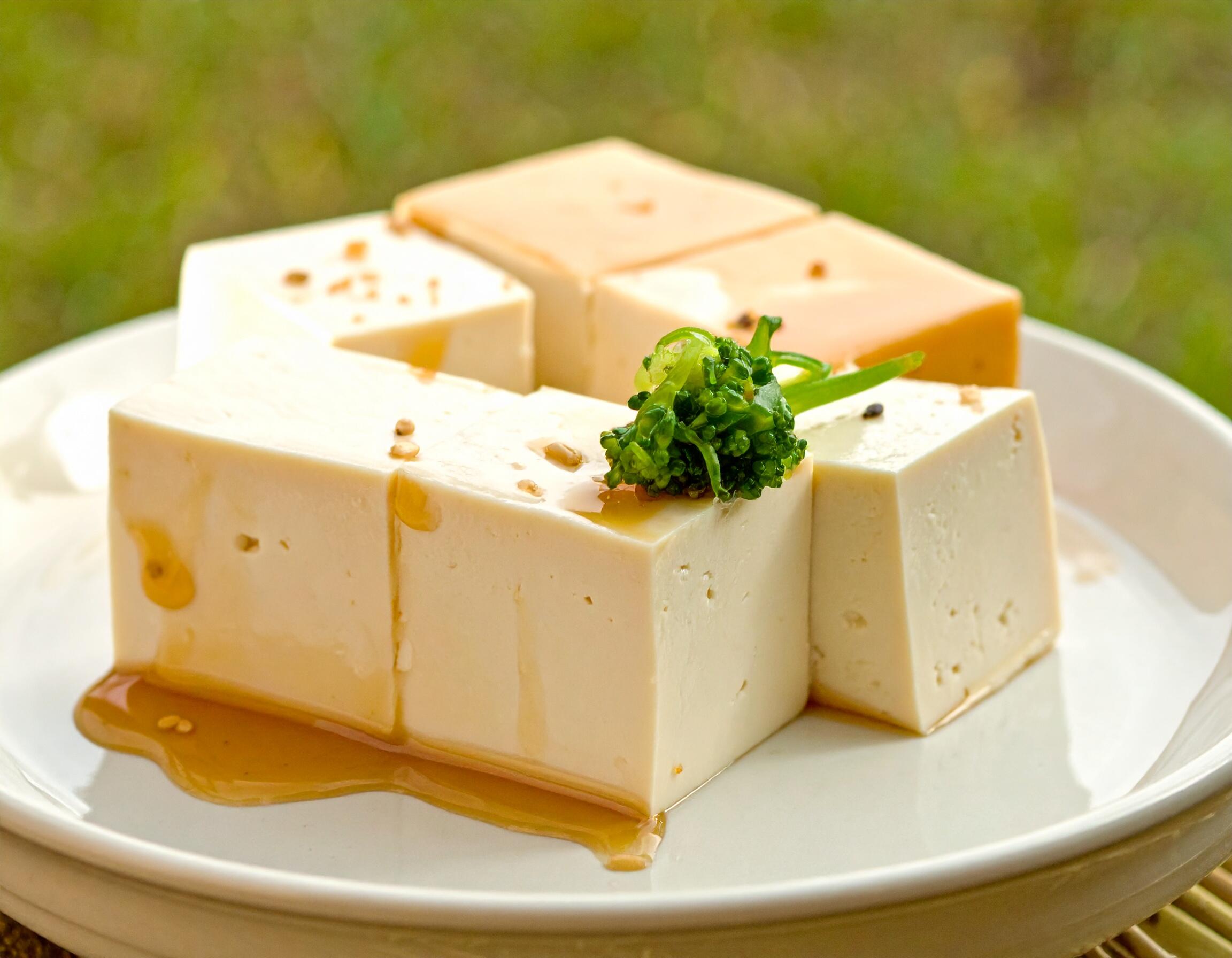
4. Butter
Vegan butters can be found in most large food stores and are preferred over margarines. Alternatively, use sunflower or olive oil instead of butter.
5. Yoghurt
Fruit-flavoured and plain vegan yoghurts grace our big supermarket shelves for both consuming as a pudding or for use in vegan baking.
6. Meat stock
Quite simply, replace any beef, prob, lamb or chicken stock with vegetable broth.
7. Honey
Contrary to popular belief, honey is not a vegan product. However, you can find a number of sweeteners in liquid form to replace the runny product.
8. Sugar
Beet sugar, fructose, date sugar, maple crystal and natural organic sugar are suitable for vegans as there is no risk of pesticides, nor are they refined using animal products.
9. Chocolate
Who says that vegans can’t indulge in a sweet, chocolate-y treat every once in a while? Thankfully, there are many vegan chocolate alternatives out there, including chips for vegan baking.
10. Ice cream
If you can’t live without this old favourite in your life, then you’ll be pleased to hear that you can find vegan-friendly ice cream based on soy, nut, rice and coconut milk products. Whether you are craving a fruity sorbet or a nutty delight, you’ll find many options.
11. Meat
Finally, how do you replace meat and still get the necessary protein in your vegan diet plan? Well, luckily for you, the vegan industry has come a long way, and as a result, products that taste like meat and have a similar texture are emerging. You’ll find veggie burgers, meatballs, sausages, bacon, beef patties, and nuggets! You can also get creative with these alternatives by trying our 10 Mouthwatering Vegan Baking Recipes, which show how to incorporate plant-based proteins into delicious meals.
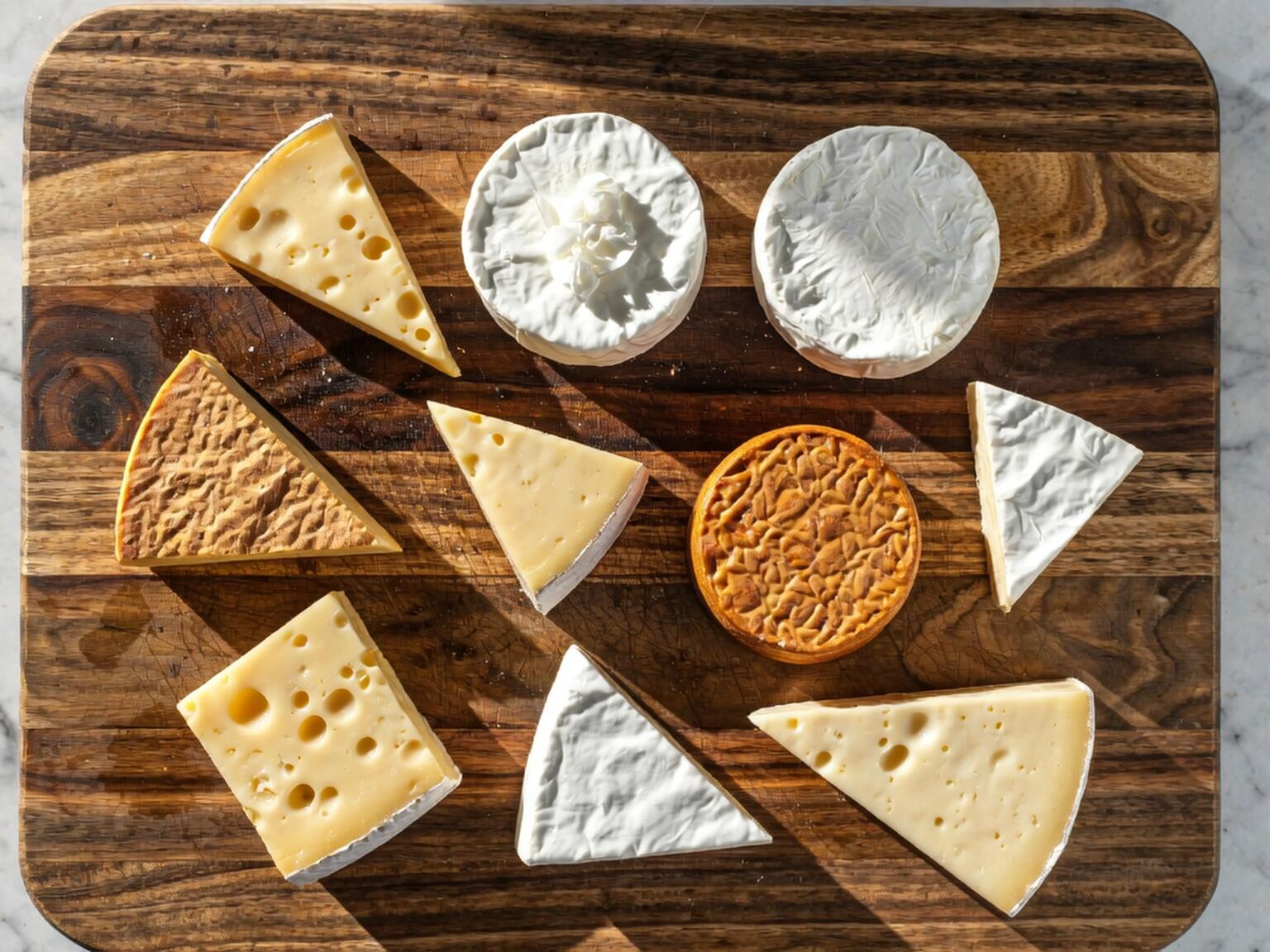
Vegan Cheese Brands You Need to Know
Vegan cheese is a plant-based alternative to traditional dairy cheese, crafted without any animal-derived ingredients. It's designed to replicate the taste and texture of cheese, offering options for those embracing vegetarianism or seeking to reduce their environmental impact. These cheeses are typically made from nuts, seeds, soy, or coconut, providing essential nutrients like iron, calcium, and fatty acids.
In Malaysia, the rise of plant-based diets has led to an increase in the availability of vegan cheese. Whether you're new to the plant-based lifestyle or a seasoned vegan, here are some reputable vegan cheese brands you can find in Malaysia:
1. Verdanya
Verdanya is a Malaysian brand known for its diverse range of vegan cheeses. Their products cater to various dietary needs, including soy-free and nut-free options. Popular choices include:
- Sunny Mozzarella Block: Made from organic sunflower seeds, offering a creamy texture.
- Extra Melty Cheddar Block: A versatile cheese suitable for melting on pizzas or in sandwiches.
- Cashew Jalapeño Block: Combines the richness of cashews with a spicy kick.
2. Nudairy
Nudairy offers a variety of vegan cheese products, including blocks, slices, and shreds. Their cheeses are crafted to mimic the taste and texture of traditional dairy cheese, providing a satisfying alternative for those avoiding animal products.
3. D'Artisan Cheese
D'Artisan Cheese is a local Malaysian producer specialising in handcrafted vegan cheeses. Their offerings include:
- Vegan Cheddar (Aiden's Gift): A cashew-based cheese infused with bell pepper and sesame seeds.
- Vegan Mozzarella: A versatile cheese suitable for various dishes.
- Vegan Parmesan: A flavorful topping for pasta and salads.
These products can be purchased directly from D'Artisan Cheese.
4. Emborg Plant-Based Cheese
Emborg, a well-known dairy brand, has expanded its product line to include plant-based cheese options. Their offerings are designed to cater to the growing demand for vegan alternatives, providing familiar cheese flavours without animal products.
Exploring vegan cheese options in Malaysia has never been easier. Brands like Verdanya, Nudairy, D'Artisan Cheese, and Emborg offer a variety of products that cater to different tastes and dietary needs. Whether you're seeking to reduce your environmental footprint, adhere to ethical dietary choices, or simply enjoy the flavours of plant-based cheeses, these brands provide authentic and credible options available in Malaysia.
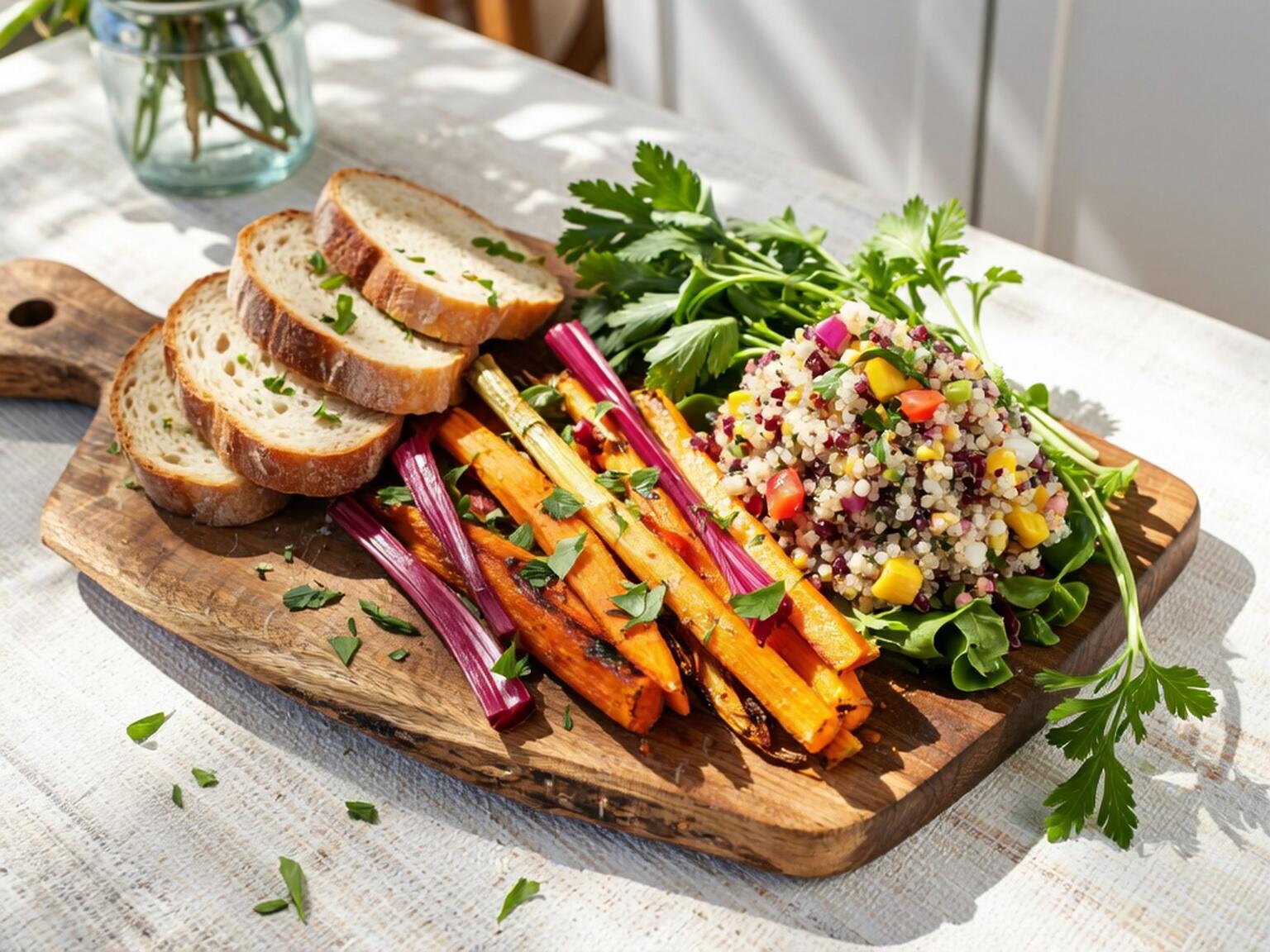
Can't I Just Buy Vegan Foods From The Shops?
Now, if you’re not confident in the kitchen and would rather leave it up to the experts to create products suitable for vegans, then why not take a look in your local superstore to see what they offer in their vegan-friendly line?
You can discover which are the top-rated supermarkets for buying vegan food in the blog The Best Shops For Vegan Food.
Basic Vegan Foods Summary
Here is a quick roundup of the vegan alternatives to your everyday basics. Whether you want to learn some easy vegan recipes or indulge your sweet tooth with some vegan baking recipes.
So, as you now know, there is a wide range of products at your disposal to make becoming a vegan easier than ever before. If in doubt about what you can use to replace a particular product in your daily life or as part of a recipe, then consult our table below summarising the key substitutions.
| Non-vegan product | Recommended vegan alternative |
|---|---|
| Dairy milk | Soya, rice, oat, nuts milk |
| Cheese | Tofu or vegan cheese |
| Eggs | Tofu, chickpea flour, soy flour, oat flour, rolled oats, aquafaba |
| Butter | Vegan butter or some margarines |
| Yoghurt | Vegan yoghurt |
| Meat stock | Vegetable broth |
| Honey | Liquid sweetener |
| Sugar | Beet sugar, fructose, date sugar, maple crystal and natural organic sugar |
| Chocolate | Vegan chocolate |
| Ice cream | Vegan ice cream |
| Meat | Tofu or vegetarian burgers, meatballs, sausages, bacon, patties and nuggets |
Summarise with AI:

